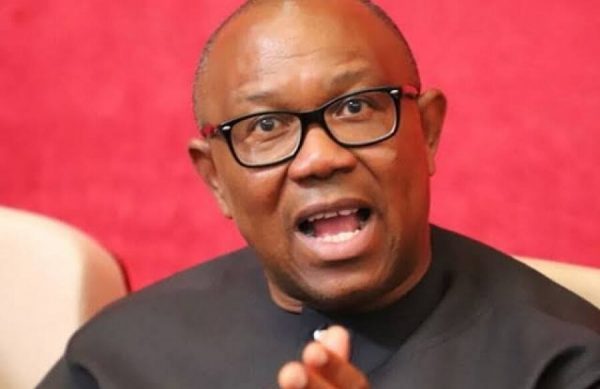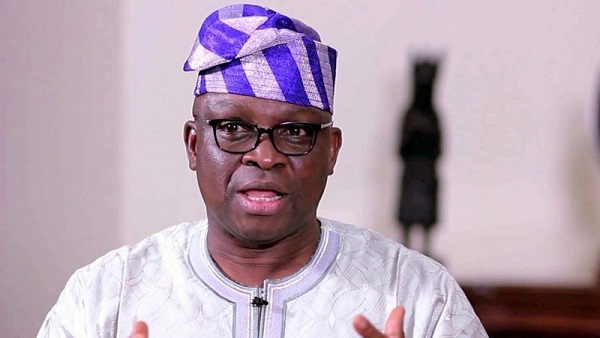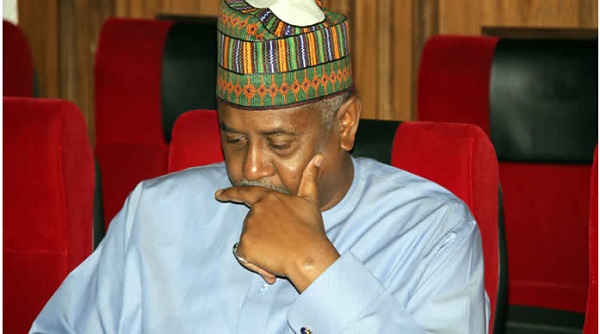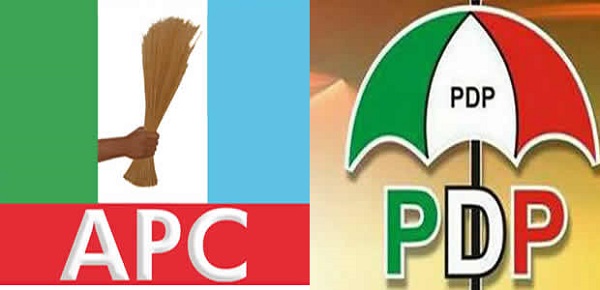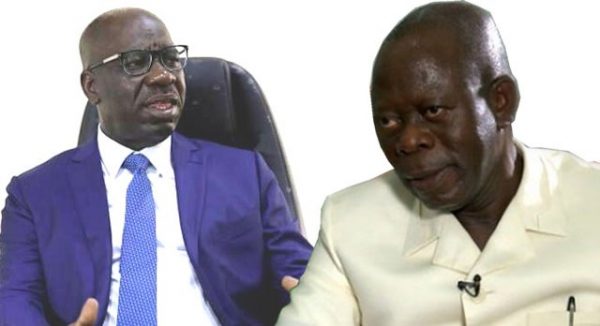Between politics of petrol subsidy and deregulation of downstream sector

The regime of fuel subsidy came into Nigeria since 1973 to cushion the impact of importation at a time the government failed to maintain the nation’s refineries despite growing demand for petroleum products. With the introduction, government fixes pump price and balances the additional cost of petroleum products, especially Premium Motor Spirit (PMS) under a scheme seen as a way to reduce poverty.
Though Nigeria is the leading oil producer in Africa boasting of about 37.2 billion barrels of proven oil reserves, the country is sadly the only member of the Organization of Petroleum Exporting Countries (OPEC) that still imports refined fuel.
While no less than N10.7 trillion was spent on petrol subsidy between 2006 and 2019, Nigerians, who are living in extreme poverty, only witnessed continuous increase, as the country eventually became the Poverty Capital of the World last year. Besides, in the past few decades, petrol subsidy is usually more of a political discussion and decision than business or economic justification or sense. This development may not be unconnected with the half truth and political statement that the only thing the Nigerian masses benefit from the country’s rich oil resources remains the shortfall government settles on every litre of petrol and that taking it away means the masses would totally miss out.
Indeed, since Nigerians believe that the pump price is inextricably connected to the prices of most commodities, especially food stuff, transportation as well as energy, the issue becomes a high score game for political actors, who win or lose support base on their take on petrol subsidy.
But the scheme has variously been criticized by economists, civil society organisations and other energy experts, who insist that the development is crippling Nigeria’s fragile economy, as it remains a conduit pipe for corruption and that it hinders the growth of the downstream sector of petroleum industry.
To underscore the burden of the scheme on Nigeria’s economy at a time when oil price was relatively fair and provided opportunity to save for hard times like the country is currently experiencing, Nigerian government under Goodluck Jonathan transferred $10.85bn from the Foreign Excess Crude Account to pay for subsidy between 2011 and 2014. Though the administration of President Olusegun Obasanjo had attempted to limit what government paid as subsidy by gradually increasing the pump price of petrol as successive governments removed subsidy on diesel and kerosene.
In 2012, the Jonathan-led government came under intense criticism as it tried to remove subsidy. A socio-political protest movement, tagged ‘Occupy Nigeria’, started across the country from Monday, 2 January 2012 in response to the planned fuel subsidy removal. The decision witnessed one of the country’s greatest agitations as protesters gathered in Lagos, Kano, Abuja, Minna, and at the Nigerian High Commission in London. It also brought civil disobedience, civil resistance, strike actions, demonstrations, and online activism, with Nigerians demanding that the pump price of petrol remain at N65.
During the attempt in 2012, leaders of the current ruling party, All Progressives Congress (APC), scattered across different opposition parties, including the defunct Action Congress of Nigeria (CAN), Congress for Progressives Congress (CPC), All Nigeria Peoples Party (ANPP) and All Progressive Grand Alliance (APGA) openly condemned and protested the removal.
President Muhammadu Buhari, former Education Minister, Oby Ezekwesili and APC leader and former governor of Lagos State, Ahmed Bola Tinubu, and other prominent personalities supported the protest and sued for the continued payment of subsidy. But on assuming power in 2015 and a little while later, the APC government began to see what the Jonathan administration saw and began to agitate for the removal of subsidy; this was despite removal not being part of the party’s campaign promises.
After the oil price crash of 2015, the Buhari-led government reintroduced subsidy as soon as it noticed the oil price rebound, a development which would have drastically increased the pump price.
To a lot of experts, subsidy is drainpipe through which corrupt Nigerians milk the country dry. They say it lacks transparency and accountability, as the payment had at some points been made without budgetary allocation thereby denying civil society organisatuions as well as the media the mechanism to monitor payments.
Many believe that the regime of subsidy is responsible for the continuous neglect of the country’s four refineries, which currently perform at an average of 5.55 per cent of their combined nameplate capacity of 445,000 barrels per daily (bpd).
In March last year, Nigeria National Petroleum Corporation (NNPC) stated that the refineries, which are located in Port Harcourt, Kaduna, and Warri recorded deficit, with losses for the period under review rising to N16.03 billion. The Kaduna Refinery specifically recorded a deficit of N5.09b, Port Harcourt, N5.37b, and Warri N5.56b in March, against a combined revenue projection of N7.7b during the month.
Seeing that the current outbreak of Coronavirus has drastically reduced global oil price and made funding of the 2020 market a difficult task, the federal government through NNPC, again announced an end to payment of subsidy.
But most stakeholders have expressed concern over the development. Some of their worries included government’s inability to address the infrastructural challenges that have long bedeviled the downstream sector of the nation’s petroleum industry, especially lack of refineries, pipelines, road network and other inherent challenges that could skyrocket the price of the product, thereby adding to the overall cost.
Indeed, with the looming scarcity of foreign exchange due to the low oil price at the international market and projected recession in Nigeria’s economy, some private players have already expressed fears that removing subsidy could return Nigeria to the days of long queues due to scarcity of the product.
Similarly, stakeholders are calling for understanding on the roles that would be played by the Petroleum Equalisation Fund (PEF) Management Board as the agency also provides some subsidy. Experts insist that there is no clarity on what the government plans to do to ensure oil marketers continue to access foreign exchange and not a situation that would give preference to some players.
WHILE stakeholders continue to canvass for a deregulated downstream sector, where market forces drive demand and supply, the current development is being seen as unclear to most industry players. This is against the background that a similar pronouncement was made in 2015, but government cleverly reintroduced subsidy payment, tagging it as under recovery thereby making NNPC the sole importer of refined products.
Group Managing Director of NNPC, Mr. Mele Kyari, had said the era of subsidy on petrol is gone forever, adding, “Subsidy and under-recovery are zero today. And it is zero forever.”
However, the APC-led administration had in 2015 touted that subsidy was removed on petrol as Vice-President, Yemi Osinbajo, then said the fuel subsidy removal had lifted the burden of not less than N15.4 billion monthly from the federal government.
The development could account for the reasons the immediate past President of Nigerian Association for Energy Economics (NAEE), Wumi Iledare, sees the current move as an announcement designed only for the pages of newspaper and just wishful thinking. For him, the power to set petroleum product price is in the Petroleum Act, adding that the development might not be about subsidy, but the power to set petroleum product price.
According to Iledare, “The only challenge is the amorphous nature of governance of the energy sector generally with a lot of institutional limitations. Another minister or president may come and disregard previous government’s executive order on product pricing issue. A look at Petroleum Products Pricing Regulatory Agency Act is also crucial and the PEF Act. There must be an Act of NASS to remove price control by regulations or by an executive order of a populist government.”
Iledare, who is Ghana’s National Petroleum Professorial Chair in Oil and Gas Economics, stated that the ignorance of consumers makes the path to full deregulation much more difficult to achieve.
“We said kerosene and diesel are deregulated, but the price is still high even at this extreme low crude oil prices,” he submitted. “Without proper education of the public, the myth that deregulation will lead to higher PMS price is a hindrance. Deregulation must not be like a thunderbolt but gradual and with legislative commitment to rules of law. That was what the PIGB was set out to do.”
Major Oil Marketers Association of Nigeria (MOMAN) recently shared the view of Iledare, rejecting price modulation and demanding for full deregulation of the market.
MOMAN Chairman, Tunji Oyebanji, had specifically noted that oil marketers would rather opt for deregulation as against price modulation as the former would bring about long term stability in the downstream sector. It further recommended a repeal of the law setting up Petroleum Equalisation Fund (PEF), stressing that the cost of administration of equalization was too high and the unequal application of payments by marketers distorts the market and creates market inequities and unfair competition.
Just as the situation was in 2016 when the price of crude went down, MOMAN believes that government would find it difficult to increase pump price due to political reasons, thereby insisting that purchase costs and open market prices should not be fixed but monitored against anti-competitive and anti-trust abuses.
Indeed, National President, Petroleum Products Retail Outlets Owners Association of Nigeria (PETROAN), Dr. Billy Gillis Harry, believes that most of the decisions recently taken by the government in the industry were only announced on the pages of newspaper without carrying the key stakeholders along. Harry told The Guardian that full deregulation at a time when Nigeria is currently dependent on importation of refined petroleum products in place of domestic refining despite four refineries remains worrisome.
“If bridging claims are expected to stop, how will the consumers in the hinterlands meet their petroleum products requirements?” he asked. “How will transportation of petroleum products be safely and efficiently handled as against the current epileptic nature of trucking and marine deliveries occasioned by bad roads and piracy? The NNPC’s pipeline network is totally not operational. What are the measures put in place to make the pipelines work efficiently and effectively?”
These are questions Harry is yet to find credible answers to. Founder and Principal Partner at Nextier, Patrick Okigbo, insisted there was need for more clarity on the plan to ensure there were no loopholes in the proposed plan. Patrick, who was unclear about the level and extent of the reform, noted that the current development was still quite ambiguous, but that it would be lasting legacy for President Buhari if he became the leader, who finally ended the 47-year-old culture of waste.
“We need to understand the role PEF will continue to play in the industry as that is also a kind of subsidy,” Okigbo said. “There is no clarity on what the government has done to ensure oil marketers continue to access foreign exchange. If NNPC is exiting the market, there needs to be clarity on whether the marketers will get dollar at the same rate that NNPC did, which I do not support, or whether they will be subject to the same conditions as other product importers such as rice importers.”
To set the sector on the right path, Okigbo insisted that neither NNPC nor oil marketers should get dollars from Central Bank of Nigeria at any discretionary rates, adding that the playing field should be the same for all players in the oil market.
“It is possible that international crude oil prices could rise and the naira could slump against the dollar,” he noted. “All of these could translate to high pump prices. It should not get the government to return to the wasteful subsidy regime. Rather, it should think through how to use the funds that would have been wasted in subsidy to improve infrastructure to assuage the increase in pump prices.”
Okigbo also raised questions about transparency, stressing that the template and indices used to determine PMS price should be made public. Another energy expert, Michael Faniran, stated that there was need to repeal the law establishing PEF through the long delayed Petroleum Industry Bill (PIB) that has suffered many setbacks or another bill. He also stated that the template for petroleum pricing by PPPRA must be made public, reflective of market rates and transparent to secure public trust. Like Okigbo, Faniran noted that unless oil marketers get foreign exchange at market rates government would end cross-subsidising
According to Faniran, “We need to ensure that NNPC does not get undue advantage as a competitor to other marketers. There must be clarity about the modulation process. Normally, I expect this to be done on a quarterly basis so that it allows marketers enough time to sell their vessels.
“Also, I expect a price band (or range) and not a single price as PPPRA has been doing now. The lower end of the price should be what it should sell in areas like Lagos, which is close to the production reception ports, and the max limit could be price it could sell in far hinterland areas like Sokoto, Borno, etc.
“This will promote competition end eventually bring the price down. If a marketer decides to sell at upper limit in Ibadan, for example, the other station across the road could sell at the lower limit to gain advantage.” Faniran noted that there was need for a downstream regulator, stressing that what is currently in place is a pricing regulator.



